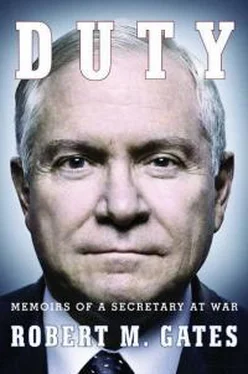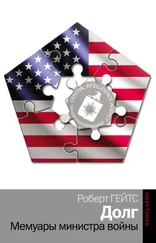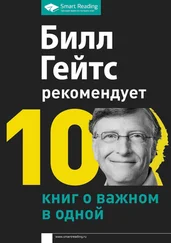The other key member of the national security team with whom I would work most closely was the chairman of the Joint Chiefs of Staff. As I’ve said, I worked with Pace for nine and a half months and with Mike Mullen for three years and nine months. They had very different backgrounds (beyond the former being a Marine, the latter a sailor) and very different personalities. Both are observant Roman Catholics, both are men of extraordinary integrity and honor, and both have good senses of humor. Their views on homosexuals serving in the armed forces were diametrically opposed—Pace adamantly against, Mullen becoming a historic advocate in favor. Both were superb advisers to me and to the presidents they served.
I was sold on Mullen to succeed Pace when Pete Chiarelli, my new senior military assistant, told me that he had paid a courtesy call on Mullen and had asked him what worried him the most about our forces, and he, the chief of naval operations, had replied, “The state of the Army.” I got to know Mullen better than Pace because of the length of our time together, and we shared more foxholes together. Despite the occasional bump in the road, I could not imagine a stronger, better chairman or a better partner.
At the outset of his tenure, Mike took on several issues where I actually agreed with him but, consistent with my practice of avoiding fights I didn’t need, thought he would spend political capital and ultimately lose. I think Mike felt the role of the chairman had been diminished over a period of years, and he was determined to strengthen it and make the chairman a much more publicly visible senior military leader. He soon took on a significant public calendar of speeches, television shows, and other appearances. Some of my staff and some at the White House became restive over this and recommended that I rein him in. While his public schedule occasionally made me uneasy, I trusted him, felt we had a strong partnership, and decided I would not make an issue of it. Mike strongly objected to Jack Keane’s advisory role in Iraq, specifically with Petraeus, and called Keane in to tell him he couldn’t go to Iraq anymore. Keane complained to the vice president, and the next thing I knew, Cheney was on the phone asking me why all the administration’s critics could travel to Iraq but not one of its foremost defenders. I ended up leaving the matter in Petraeus’s hands—if he could use him and found value in his visits, then Keane could go over. Mike objected to retired military officers taking an active role in politics and spoke out forcefully against it. He also wanted to eliminate the use of the term “Global War on Terror” by the military, early on in his tenure, perhaps to stake out his independence from the White House. Again, I didn’t really disagree, but I knew it would raise hackles throughout the administration and was another hassle we didn’t need. All that said, over nearly four years, there were only a few issues or decisions of consequence where we disagreed.
Mike had many strengths. He gave me great advice on military appointments and those personal relationships among senior officers that count for so much. He was a powerful advocate of accountability, especially after a screw-up, and thus an important ally when it became necessary to fire or replace senior officers. One of his greatest strengths was his ability to bring the service chiefs together as a unified front when we had to deal with tough issues like the budget, thereby mostly avoiding internecine fighting among the services. He also made sure they had the chance to present their views directly to me and, whenever necessary, to the president. He had the gift of fostering unity, and I believe it well served the military, both presidents, the country, and me.
Perhaps for the first time ever, the chairman and the secretary of defense were next-door neighbors. Confident that I was going to be in Washington for only two years, for an exorbitant amount of money I rented a house on the Navy compound next door to where Mullen lived as chief of naval operations. He remained there as chairman, even though there is a very large house at Fort Myer, in Virginia, just across the Potomac from D.C., reserved by law only for the chairman. As a result, on weekends, Mike and I fairly often would wander over to each other’s porch to talk through some sensitive issue or crisis or our agenda. It must have been a strange sight for others working in the compound on a weekend to see the chairman of the Joint Chiefs of Staff in a T-shirt, shorts, and sandals sitting on the porch talking to the secretary of defense wearing jeans and a sport shirt and smoking a cigar.
One little problem was that, as chairman, Mike had several noncommissioned officers who worked at his house, cooking, cleaning, and so on. I, on the other hand, despite being secretary of defense and his boss, was a civilian and therefore not entitled to the household help that top generals and admirals receive. There was a lot of good-humored back-and-forth between us about the situation. I’d see Mike headed out on a weekend, and as I told my staff, “I was out there watering my damn flowers.” One night there was a terrible rain and windstorm, and a big limb came down in my yard. It lay there for several days, and I finally told one of my security officers, “After dark, drag the thing over to Mullen’s yard—it’ll be gone in an hour.” Sure enough, it was. At my farewell ceremony, Mike suggested that I had blown leaves over onto his yard. Not true, but only because I didn’t have a leaf blower.
The other senior military officer with whom I would work most closely was Marine General James (“Hoss”) Cartwright. During my first months on the job, I had been extremely impressed with Hoss, then the commander of Strategic Command (responsible for U.S. nuclear forces and, at that time, cyber warfare). When the president decided to nominate Mike as chairman, Hoss was my pick for vice chairman. He had extraordinary technical expertise and a rare ability to explain highly technical matters in a clear and straightforward manner to the layman. I settled on Hoss before consulting Mike, who had reservations. I told him I had made up my mind and asked him to make it work. For four years, both were highly professional and the relationship did work more or less, but the chemistry between them at the beginning was not good and would only get worse. Both Bush 43 and President Obama developed a high regard for Hoss. He represented the chiefs at the “deputies”-level meetings at the White House and had to spend an inordinate amount of time there each day alongside the civilian undersecretary of defense for policy, who was my representative. This group, which Brent Scowcroft and I had created in 1989 and I had chaired as deputy national security adviser under Bush 41, would hash out policy options in preparation for meetings of their bosses and play a key role in crisis management. Cartwright performed superbly in that forum, as well as in his other responsibilities as the second-ranking American military officer, including procurement, budget issues, and other critical administrative matters. He and Mike had very different styles, and getting the Joint Staff to be open and work hand in glove with its civilian counterparts in the department was an ongoing challenge (something I suspected was not a new phenomenon at Defense). When Mike was traveling, Hoss would accompany me to all meetings at the White House, including my private meetings with the president. He was very smart and had great common sense—and a sense of humor. I valued him and his contribution the entire time we worked together, although I would come to have some issues with him under President Obama.
BECOMING “THE SOLDIERS’ SECRETARY”
As president of Texas A&M, I had devoted a lot of time and effort to looking after the interests of the students. They would often send me their complaints by e-mail, and whenever I thought they had a legitimate gripe, which was pretty often, I would be sure the university responded. I invited the student body president to be a regular participant in my executive staff meetings. I participated in countless student events. In many huge universities, the president is just a name to the students. I wanted them to think of me as their advocate in that huge bureaucracy. By all accounts, I was successful in establishing that kind of relationship and reputation. As mentioned earlier, ten thousand students turned out to say good-bye on my last day there.
Читать дальше












